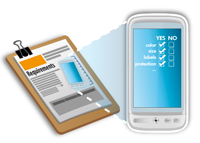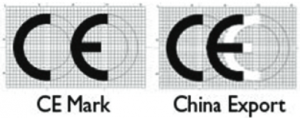 A few years ago, I worked with a very experienced French importer. He was playing games with his Chinese suppliers to extract their best pricing. But he was very straight when it came to dealing with his country’s customs office. He told me to “never take any chances with them, they can throw you directly in jail”.
A few years ago, I worked with a very experienced French importer. He was playing games with his Chinese suppliers to extract their best pricing. But he was very straight when it came to dealing with his country’s customs office. He told me to “never take any chances with them, they can throw you directly in jail”.
Unfortunately, many importers are not aware of the risks involved in their activity. They feel they “cover their rear end” when they ask their Chinese manufacturers for certificates of compliance to their country’s regulations.
Is it enough to get a paper “certifying” that the product you are buying is CE- and ROHS-compliant (for example)? No!
Chinese exporters can get any paper they want–they just need to pay for it, or do a bit of Photoshop magic. And maybe they really sent their products to a lab for a previous order, but who knows if you will really get the same goods (made in the same workshop, and out of the same components)?
Is it enough if you see the “CE” mark on the product body? No!
There is no legal risk (except is you have a contract that is enforceable in China and that addresses this issue) for a Chinese supplier to sell products bearing marks that are only intended to deceive consumers.
I was reading the latest edition of the Sourcer magazine when I found yet another example where a Chinese manufacturer tried to fool foreign buyers.
Here is an extract from an article written by Charles Kimuss, an American importer of electronic products:
The latest saga consists of equipment that is labeled with a new label that I feel is now giving the consumer a false sense of security and leading the customer to assume that a product meets CE safety testing when it fact it does not. Of interest in particular to EU buyers here is the latest in new marketing concepts from some less than professional Mainland Chinese manufacturers that I have recently run into… a label that designates “China Export” and may be confused with the recognized “CE” product safety label. Compare the two labels:
A product marked with a CE, UL, cUL, FCC or other laboratory mark indicates that a product is safe. On seeing such a label one would automatically assume that the manufacturer has gone through all the steps to meet safety standards. It also implies that the manufacturer is sincere and implies that the product is world class. Not the case here.
To avoid this type of situation, read 5 tips for testing China products against regulatory standards.


Preach on brother. Renaud, it seems when I try to tell some importers these kinds of stories, they just look at me like I’m telling “scary stories” or only trying to make a sale. A buyer told me the other day that one trade company can prove they have CE – my response was they can prove they have anything….but that doesn’t make it so (like you said above, is it up-to-date certification? is it specifically for your item? are the goods used in production the same as the certified doc?, etc..)
This is a great article and if it can inspire folks to do “due diligence” before they order, then it’s a successful article. In a land of “buyer beware” the importer is placing the ethics of their home country & their desire for good margins over reality. I’m convinced a lot of the product recalls you see in the market are more so the fault of the importer, because most likely they didn’t proceed with caution.
Hi Jacob, thanks for the comment. You are right, there is no way first-time importers suspect this kind of stuff…